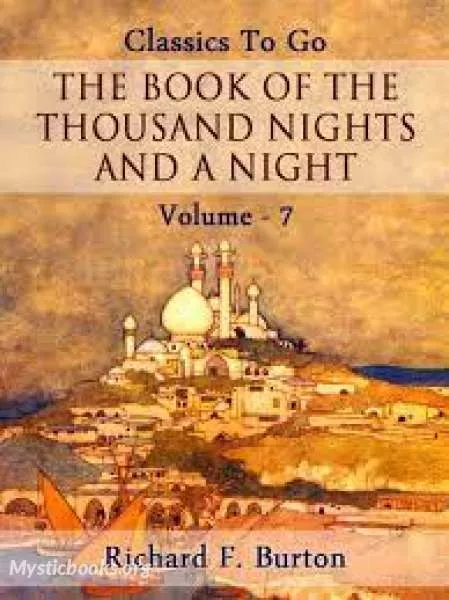
The Book of A Thousand Nights and a Night (Arabian Nights), Volume 07
'The Book of A Thousand Nights and a Night (Arabian Nights), Volume 07' Summary
The main frame story concerns Shahryār (Persian: شهريار, from Middle Persian: šahr-dār, 'holder of realm'), whom the narrator calls a "Sasanian king" ruling in "India and China." Shahryār is shocked to learn that his brother's wife is unfaithful. Discovering that his own wife's infidelity has been even more flagrant, he has her killed. In his bitterness and grief, he decides that all women are the same. Shahryār begins to marry a succession of virgins only to execute each one the next morning, before she has a chance to dishonour him.
Eventually the Vizier (Wazir), whose duty it is to provide them, cannot find any more virgins. Scheherazade (Persian: شهْرزاد, Shahrazād, from Middle Persian: شهر, čehr, 'lineage' + ازاد, āzād, 'noble'), the vizier's daughter, offers herself as the next bride and her father reluctantly agrees. On the night of their marriage, Scheherazade begins to tell the king a tale, but does not end it. The king, curious about how the story ends, is thus forced to postpone her execution in order to hear the conclusion. The next night, as soon as she finishes the tale, she begins another one, and the king, eager to hear the conclusion of that tale as well, postpones her execution once again. This goes on for one thousand and one nights, hence the name.
The tales vary widely: they include historical tales, love stories, tragedies, comedies, poems, burlesques, and various forms of erotica. Numerous stories depict jinn, ghouls, apes, sorcerers, magicians, and legendary places, which are often intermingled with real people and geography, not always rationally. Common protagonists include the historical Abbasid caliph Harun al-Rashid, his Grand Vizier, Jafar al-Barmaki, and the famous poet Abu Nuwas, despite the fact that these figures lived some 200 years after the fall of the Sassanid Empire, in which the frame tale of Scheherazade is set. Sometimes a character in Scheherazade's tale will begin telling other characters a story of his own, and that story may have another one told within it, resulting in a richly layered narrative texture.
Different versions differ, at least in detail, as to final endings (in some Scheherazade asks for a pardon, in some the king sees their children and decides not to execute his wife, in some other things happen that make the king distracted) but they all end with the king giving his wife a pardon and sparing her life.
The narrator's standards for what constitutes a cliffhanger seem broader than in modern literature. While in many cases a story is cut off with the hero in danger of losing their life or another kind of deep trouble, in some parts of the full text Scheherazade stops her narration in the middle of an exposition of abstract philosophical principles or complex points of Islamic philosophy, and in one case during a detailed description of human anatomy according to Galen—and in all of these cases she turns out to be justified in her belief that the king's curiosity about the sequel would buy her another day of life.
Book Details
Language
EnglishOriginal Language
Arabic, PersianPublished In
Authors
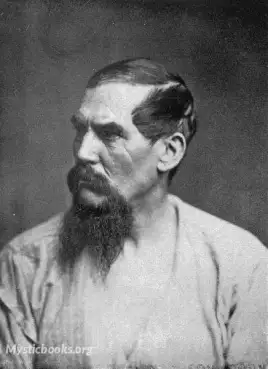
Richard Francis Burton
England
Sir Richard Francis Burton was a British explorer, scholar and soldier. He was famed for his travels and explorations in Asia, Africa, and the Americas, as well as his extraordinary knowledge of langu...
Books by Richard Francis BurtonDownload eBooks
Listen/Download Audiobook
- Select Speed
Related books

Stories of Old Greece and Rome by Emilie Kip Baker
The Stories of Old Greece and Rome is an easy to read summary of all of the famous and not so famous Greek and Roman mythological stories. All of the...

I Am A Cat (excerpt) by Sōseki Natsume
In "I Am a Cat", Natsume Sōseki presents a unique and insightful exploration of Japanese society through the eyes of a cynical yet perceptive feline n...
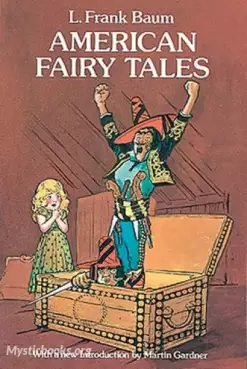
American Fairy Tales by L. Frank Baum
American Fairy Tales is the title of a collection of twelve fantasy stories by L. Frank Baum, published in 1901 by the George M. Hill Company, the fir...
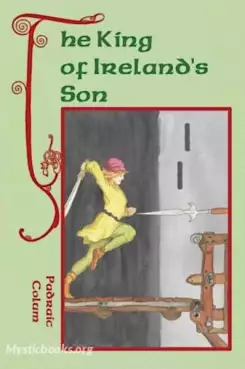
The King of Ireland's Son by Padraic Colum
The King of Ireland's Son is a children's novel published in Ireland in 1916 written by Padraic Colum, and illustrated by Willy Pogany. It is the stor...

The Dragon of Wantley by Owen Wister
A novel, The Dragon of Wantley, was written by Owen Wister (best known as the author of The Virginian) in 1892. Published by Lipincott Press, the stor...
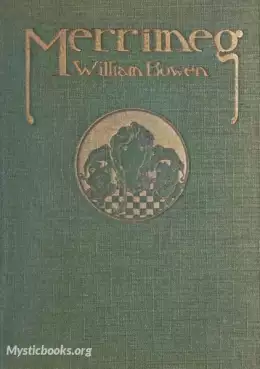
Merrimeg by William Bowen
This is a charming fairy story by renowned author William Bowen. Merrimeg is a kind, helpful and obedient little girl. But after finishing her chores,...

Hagar's Daughter. A Story of Southern Caste Prejudice by Pauline Elizabeth Hopkins
Hagar's Daughter was first published serially in "The Colored American Magazine" in 1901-1902 by Pauline E. Hopkins, a prominent African-American nove...

versiegelte Engel by Nikolai Leskov
In einer kalten Winternacht in einer überfüllten russischen Herberge berichtet ein Gast von der Beschlagnahme aller Heiligenbilder seiner altgläubigen...
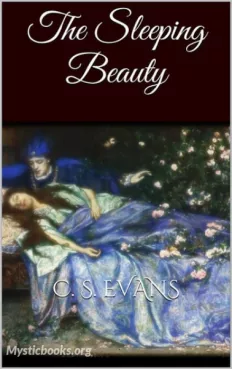
The Sleeping Beauty by C. S. Evans
The story follows the familiar tale of a beautiful princess who is cursed by an evil fairy and falls into a deep sleep, only to be awakened by the kis...

History of the Britons by Nennius
The History of the Britons is a purported history of the indigenous British (Brittonic) people that was written around 828 and survives in numerous re...
Reviews for The Book of A Thousand Nights and a Night (Arabian Nights), Volume 07
No reviews posted or approved, yet...